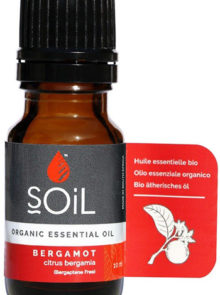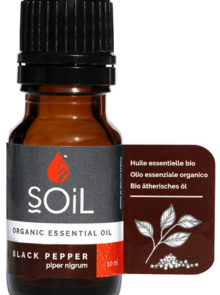A good essential oil can handle just about anything – and treating seasonal allergies is on the list!
“Essential oils have long been known for their supporting action on the immune system,” says aromatherapist Ines Willis. “Bergamot, rosemary and thyme are just a few that act as tonics for the immune system.” In fact the benefits of essential oils for allergies are endless.
ALSO SEE: Natural remedies for everyday health problems
Allergic rhinitis, the medical term for hay fever or seasonal allergies, develops when the body’s immune system becomes sensitised and overreacts to things in the environment such as grass and pollen. These allergens can affect the nose, throat, ears, lungs, sinuses and the skin.
When left untreated, seasonal allergies can cause a variety of unpleasant side effects such as;
• Sneezing
• Coughing
• Streaming eyes and nose
• Headaches
• Congestion
• An impaired sense of smell
Are allergies hereditary?
The tendency to suffer from allergies, such as asthma, hay fever or eczema, can run in families says GP, Dr Rosemary Leonard.
It’s a condition known as atopy, and research has shown that if one parent is atopic, there’s a 20% chance of their children having the diagnosis, while if both parents are atopic, the chance of their kids being affected rises to 60%.
However, the genetics of an allergy are complex, which means that children don’t inherit an allergy to a specific substance. So although you’re at slightly increased risk of a reaction, the chance of being allergic to the same things as your parents is slim.
However, the good news is, there are endless benefits of essential oils for allergies. In fact, the right essential oil will help to soothe the side effects of allergies, as well as boost the immune system.
ALSO SEE: The health benefits of eating beetroot
How to use essential oils for allergies
Once added to a carrier oil, essential oils can be used in the bath, as an inhalation, a room fragrance and for massage.
Ines has come up with a fabulous blend of essential oils to boost the immune system and soothe allergy symptoms.
Applying this regularly will help to minimise your chances of catching a secondary infection from an allergy. Here’s her recipe…
Add 2 drops of tea tree, 2 drops of bergamot and 2 drops of back-pepper essential oils (these are antimicrobial, antiviral, antibacterial, and great immune boosters) to 1 tablespoon of carrier oil.
Try one of these mini therapies every day to help tackle the bugs and aid immunity:
- In the bath. Swish it through the water, lie back and breathe in as you relax.
- In a footbath. So soothing for feet and the body, as you inhale the vapour.
- As a steam. Add to a basin of hot water, lean over and breathe in.
- In the air. Add a few drops to a vaporiser or burner, and let it work the room.

Bergamot Essential Oil, R119, Soil at Faithful-to-nature

Black Pepper Essential Oil, R121.95, Soil at wellness warehouse
To find an aromatherapist near you, visit www.aromasa.org.za
Homeopathic tinctures
These are also great for treating seasonal allergies says homeopath, Dr Vicki Compère. “Homoeopathy is a natural system of medicine that supports the body’s own healing ability. Not only is it inexpensive, but also highly effective when the correct remedy is prescribed by a qualified Homeopath,” she adds.
Try these tinctures to relieve those debilitating symptoms;
- Allium Cepa: For watery eyes and a streaming nose.
- Euphrasia: For burning, watery eyes
- Arsenicum Album: For stuffy noses and a burning sensation in the nose and throat
- Sabadilla: For headaches and acute sinusitis. This tincture is also effective for soothing a constant itchy nose and sneezing.
- Natrum Muriaticum: For a dry cracked mouth, sneezing and a runny nose
It’s a good idea to see a registered homeopath, who will give you the right protocol (including the correct dosage of homeopathic remedies) to treat your specific symptoms.
A new test to find allergic triggers
You might dismiss a few sneezes or a bout of eczema as minor, but these symptoms could be a sign of a more serious allergy. However, a single test can help pinpoint specific allergic triggers.
The ImmunoCAP blood test measures the concentration of immunoglobulin E (IgE) in the blood, which reveals your allergic sensitivity to a wide range of allergens, including those in food, pollen, grass and animal dander.
Discuss which allergens to test for with your GP, who will then take a blood sample and send it off to a lab. The results will help your GP build your individual allergy profile, and then treat you accordingly.
Essential oils can safely complement any other medicinal regime you might be put on. Click here for more information.
- By freelance writer, Tammy Jacks

